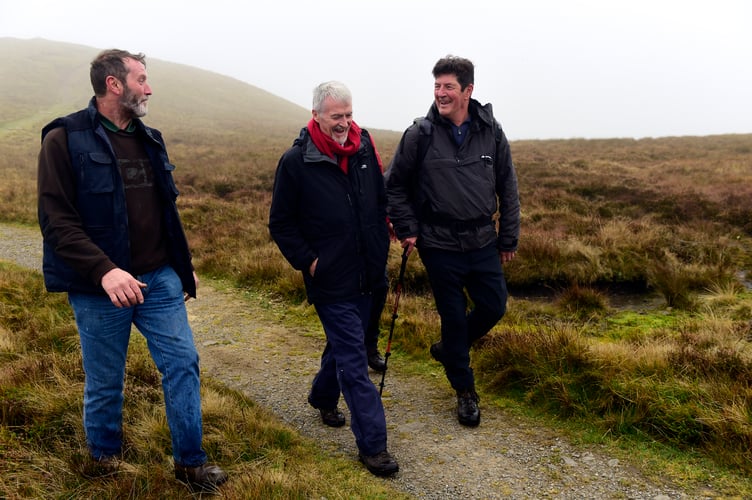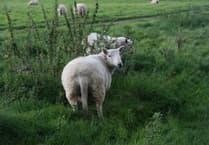A major peatland restoration project in the Black Mountains is saving tens of thousands of tonnes of carbon emissions every year – the equivalent of taking 169 cars off the road – thanks to £1.2m of Welsh Government support.
The initiative, which has been delivered by the National Park Authority in partnership with local graziers and contractors has significantly exceeded its original targets –to help absorb carbon and protect unique wildlife habitats.
Eroding peatland is a significant contributor to carbon emissions, with peatlands storing over a quarter of Wales' land-based carbon despite covering only 4 per cent of the land.
The Welsh Government says the project in Bannau Brycheiniog has achieved “remarkable” results, seeing 38km of peat hags; the eroded gullies and overhangs of peat, stabilised against an original target of just 10km.
10km of bare peat surface has also been planted with mosses and grasses, resulting in over 89 hectares of exposed peat being protected against an initial target of 3 hectares – saving thousands of tonnes of carbon emissions each year.
The restoration work has installed 530 leaky dams and 700m of biodegradable coir bunding to manage water runoff and re-wet the peatland and seen over 6km of pathways restored to prevent erosion from walkers.
On a visit to see the results of the project for himself, the Deputy First Minister with responsibility for Climate Change, Huw Irranca-Davies, said:"Peatlands are fantastic at absorbing carbon and also providing unique wildlife habitats, but they often need our help to restore them to good condition.
“Diolch o galon to the whole team behind this effort to improve our valuable peatlands. It shows how ambitious, landscape-scale projects can deliver real change for Wales.”
Last year, the Welsh Government beat its initial 5-year target of restoring 3,000 hectares of peatland 12 months early.
An additional £5.2m has since been pledged to build on the progress achieved by the National Peatlands Action Programme (NPAP), which is delivered by Natural Resources Wales.
The funding for the work in Bannau Brycheiniog is in addition to the NPAP funding and has been provided from the Welsh Government’s Sustainable Landscapes, Sustainable Places programme, which provides capital investment to National Parks and National Landscapes to deliver projects supporting nature, climate change mitigation, sustainable tourism and resilient communities.
Landmark legislation has also been introduced which will strengthen support for different groups throughout Wales to come together and work to protect nature.
The Environment (Principles, Governance and Biodiversity Targets) (Wales) Bill will play a crucial role in safeguarding Wales' natural environment.
The Deputy First Minister added: “We will continue close collaboration with our partners to address the climate and nature emergencies while supporting exciting green job opportunities across Wales to support our economy.
“Only by working together can we make a significant change.”
Peatland restoration is the process of returning damaged or degraded peatlands - wetlands made of partially decayed organic material accumulated over thousands of years - to a healthy, functioning state. These ecosystems store carbon, support unique wildlife, and help regulate water.





Comments
This article has no comments yet. Be the first to leave a comment.